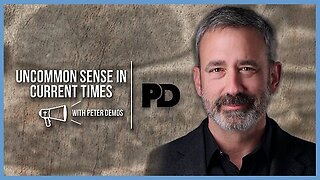Premium Only Content

The hyper Crisis in adults
Hypertension, commonly known as high blood pressure, is a prevalent health condition that affects a significant number of adults worldwide. It is characterized by persistently elevated blood pressure levels, where the force of blood against the arterial walls is higher than normal. Hypertension is often referred to as a "silent killer" because it typically does not cause noticeable symptoms, but it can have severe long-term consequences if left uncontrolled.
In adults, hypertension is usually categorized into two types: primary (essential) hypertension and secondary hypertension. Primary hypertension is the most common form and develops gradually over time due to a combination of genetic and lifestyle factors. Secondary hypertension, on the other hand, is caused by an underlying health condition such as kidney disease, hormonal disorders, or medication side effects.
Several risk factors contribute to the development of hypertension in adults. These include age (the risk increases with advancing age), family history of hypertension, obesity or overweight, sedentary lifestyle, high sodium intake, excessive alcohol consumption, tobacco use, chronic stress, and certain medical conditions such as diabetes and high cholesterol.
The impact of hypertension on adult health is significant. Uncontrolled high blood pressure can lead to several complications, including:
Cardiovascular Disease: Hypertension is a major risk factor for heart disease, heart attacks, strokes, and other cardiovascular problems. The excessive force exerted on the arterial walls can damage blood vessels, leading to atherosclerosis (narrowing and hardening of the arteries) and increasing the risk of heart-related events.
Kidney Damage: Persistent high blood pressure can harm the kidneys over time, reducing their ability to function properly. This can result in chronic kidney disease and, in severe cases, kidney failure requiring dialysis or transplantation.
Eye Problems: Hypertension can affect the blood vessels in the eyes, leading to retinopathy, a condition that can cause vision impairment or even blindness if left untreated.
Cognitive Impairment: Research suggests a link between hypertension and cognitive decline. Uncontrolled high blood pressure may increase the risk of developing dementia, Alzheimer's disease, and other cognitive disorders.
Metabolic Syndrome: Hypertension often coexists with other metabolic abnormalities, such as high blood sugar, high cholesterol levels, and excess abdominal fat. This combination, known as metabolic syndrome, significantly increases the risk of cardiovascular disease and type 2 diabetes.
Managing hypertension involves a combination of lifestyle modifications and, in some cases, medication. Lifestyle changes include adopting a balanced and low-sodium diet, engaging in regular physical activity, maintaining a healthy weight, limiting alcohol consumption, quitting smoking, and managing stress effectively. Healthcare professionals may also prescribe antihypertensive medications to help lower blood pressure to a target range.
Regular blood pressure monitoring, routine check-ups, and adherence to prescribed treatments are essential for adults with hypertension. With early detection, proper management, and a commitment to a healthy lifestyle, individuals with hypertension can reduce the risk of complications and improve their overall health and well-being.
-
 LIVE
LIVE
SpartakusLIVE
6 hours ago $13.53 earnedThe Duke rallies squad for LAUGHS into the night with a SMATTERING of TOXIC banter
2,270 watching -
 1:03:51
1:03:51
Flyover Conservatives
1 day agoGeneration Z’s Revolution: 17 Year Old Author on the Return of Faith, Family, and the End of Feminism - Hannah Faulkner; Economic Update - Dr. Kirk Elliott | FOC Show
27.5K2 -
 1:12:43
1:12:43
Adam Does Movies
9 hours ago $6.48 earnedMoviegoers Are Singing Now! + Lilo & Stitch + Sonic 3 - LIVE!
55.8K7 -
 1:26:05
1:26:05
Donald Trump Jr.
12 hours agoRegime Media Imploding: What’s Next for MSNBC? Plus Michael Knowles & Alex Marlow | TRIGGERED Ep.194
209K201 -
 37:26
37:26
Glenn Greenwald
9 hours agoGlenn Takes Your Questions: On Trump's Cabinet, The G20 Summit, and More | SYSTEM UPDATE LOCALS SPECIAL
77.9K30 -
 2:10:20
2:10:20
We Like Shooting
16 hours ago $1.19 earnedWe Like Shooting 586 (Gun Podcast)
16K -
 52:14
52:14
Uncommon Sense In Current Times
11 hours ago $0.33 earned“Pumpkin Pie Politics: Bridging the Thanksgiving Divide to Protect The Family"
12K -
 1:01:28
1:01:28
The StoneZONE with Roger Stone
6 hours agoWhy Jack Smith Owes Americans Millions of Dollars for Fake Investigations | The StoneZONE
33.3K5 -
 3:50:40
3:50:40
Tundra Gaming Live
10 hours ago $2.27 earnedThe Worlds Okayest War Thunder Stream
33K -
 2:22:30
2:22:30
WeAreChange
8 hours agoBREAKING: Biden Admin Could SEND NUKES To Ukraine?! UK & France To Send Troops? w/ Roger Stone
49.6K17